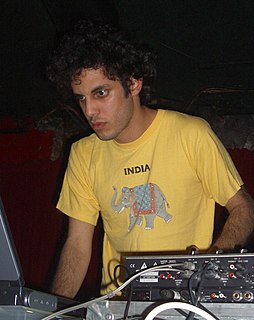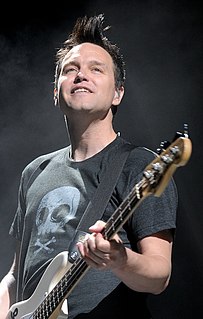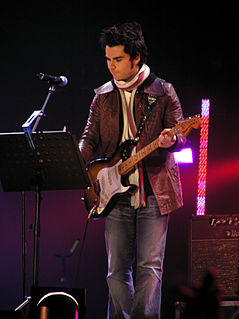A Quote by Kieran Hebden
Make a record in your bedroom on a cheap computer, play it on pirate radio, and that's what's it's all about. You can do something really exciting and you don't need any record companies. The way I do everything comes from that, the impact of those two things.
Related Quotes
I love to play music, and this is fun, and let's record this stuff in a way that we both like. That was exciting enough, so we just recorded it. There was no business in it until the very last minute, really. It was really as much of an extension of me writing the songs in my bedroom as it could possibly be.
You're just these kids from a small town. You get a record deal, and everything just goes so fast. In the span of five albums... in a way, the band that you started in your bedroom, or your basement or your garage, kind of becomes not your band anymore. It becomes something bigger than you could have known. No one really prepares you.
Record stores are the backbone of the recorded music culture. It's where we go to network, browse around, and find new songs to love. The stores whose staff live for music have spread the word about exciting new things faster and with more essence than either radio or the press. Any artist that doesn't support the wonderful ma and pa record stores across America is contributing to our own extinction.
I wish I could go out farther from my musical history. I didn't realize how hard it was until I tried to do it. All the basic tracks on Romanian Names were done in my basement, alone, without any of the self-consciousness that comes with being in the studio. It was a completely different process. And those two things definitely made the record sound different. But you want this quantum leap from record to record, and maybe if I did make a quantum leap I'd make an unlistenable album. So maybe I'm lucky that I can't pull it off.
I didn't really feel any pressure when I've made records, I haven't as yet anyway. I feel when I'm making a record that I'm so excited about making new songs that when I'm doing demos of new songs, as soon as I make one that's really different I get really excited about the record, I don't care about the last record anymore.
I think a bigger difference with social media is going to be things like the impact Instagram will have for historians. For the longest time, we had no images of the past. And then when we had the advent of the camera, we had a record of the things people chose to photograph, which, for a while, were portraits of your family, a new building we built, or a really big horse. Well now we have images of everything. That will be the biggest difference I think - that we will have a visual record of this reality in a way that will be completely covered.
You could have a zillion Facebook followers. Those people don't buy records. It's about a hundred to one...Record companies, they don't have any money so they see social media as the free marketing...So,...'Billy, light yourself on fire and stand upside down, and that'll market the record'. I've spent a lot of time thinking about this. I don't think people by records because of anything that happens on Facebook. They buy records cause they're friends say 'I bought this record and I love it'.



































